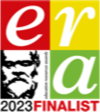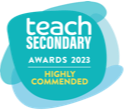How will these resources help you?
Each year, the world consumes more than 92 billion tonnes of materials, with the richest countries consuming, on average, 13 times more than the poorest. From farming to mining, extractive industries are responsible for half of the world’s carbon emissions, more than 80% of biodiversity loss and 85% of water stress. As a result, the processes of resource extraction are saturated in conflict and resistance from local to global scales. These resources are intended to promote critical and creative pedagogies around extractivism and the social movements resisting it around the world. I have been fortunate enough to use many of these resources with different age groups in the classroom, igniting insightful and informative teaching and learning opportunities.
Mining TNCs and indigenous resistance
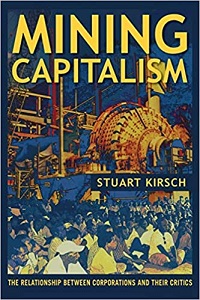
Mining Capitalism: The Relationship between Corporations and Their Critics
by Stuart Kirsch, published by University of California Press, (2014)
Corporations (and TNCs in particular) are powerful players in labour and capital markets, driving the forces of globalisation. Despite bringing some benefits, these institutions are significantly responsible for many environmental, social and economic harms and challenges. However, the power of corporations is being resisted locally and globally, exposing and documenting harmful corporate practices, providing information to the public and gathering influence and widespread support for their cause.
In this informative and accessible book, Kirsch looks at the relationship between mining corporations and their critics through an in-depth case study of the struggles around the Ok Tedi gold and copper mine in Papua New Guinea and the lives of people living near the mine owned by Anglo-Australian TNC BHP. As an anthropologist, Kirsch laces this work with maps and images that document the transnational networks of Indigenous people, NGOs and lawyers who mobilised to take on this huge global corporation and the corporate and state responses to this. Although this is a longer read for time-stretched educators, later chapters apply these rich insights from the mining industry to wider economic and political contexts, which are enormously beneficial to students and teachers grappling with these.
Community resistance to mining in Latin America
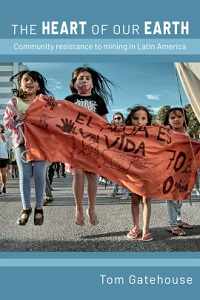
The Heart of Our Earth: Community resistance to mining in Latin America
by Tom Gatehouse, published by Practical Action Publishing, (2023)
| I have found that teaching about the world’s social and ecological crises in the classroom often evokes feelings of anxiety, grief, and despair in students. My antidote has been to amplify the stories, lives, movements and visions of people resisting industrial harms and building fairer and more sustainable futures. Few books do this better than The Heart of Our Earth. Written in clear, non-technical language, Heart of Our Earth is for students, academics, activists, journalists and anyone who has ever wondered about the true costs of the metals which increasingly power our lives. It traces the history of Latin America from the Spanish conquistadores to the present through a spotlight on the mining industry, which has radically transformed landscapes and lifestyles across the continent. However, frontline communities have been mobilising to defend their lands, water, livelihoods and cultures through roadblocks and research, sabotage and street theatre. This book takes us from the Argentine Patagonia to the Amazon Rainforest and the Guatemalan Highlands, not shirking from the heavy price communities pay for their opposition but highlighting many impressive victories.
Visit the Heart of Our Earth website for additional reading and insightful multimedia material, including interviews, videos, panel discussions with frontline defenders, articles and upcoming events.
Visit the Heart of Our Earth website for additional reading and insightful multimedia material, including interviews, videos, panel discussions with frontline defenders, articles and upcoming events.
Resources for a post-extractive transition
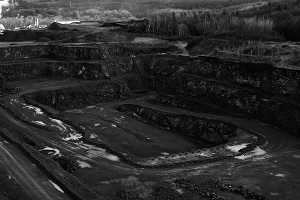
Education Resources & Projects
published by London Mining Network, (2020)
The London Mining Network is an alliance of more than 30 environmental and international solidarity organisations working to expose human rights abuses and environmental crimes committed by mining companies based in London. Its activities also include research and education about extractive industries.
These educational resources are varied and engaging for all ages in education. For secondary schools and universities, workshops like ‘Life Above the Coal Mine’ engage young adults in the struggles of communities resisting open cast mining in Colombia and India. At the same time, the ‘Phone Cycle’ board game moves students around the globe following the life cycle of a smartphone. Film-based lessons include the incredible story of ‘The People who Shut Down a Mine’ in Bougainville and a discussion guide to accompany the documentary ‘Powerlands’ on Indigenous resistance to resource extraction from the Navajo Nation and Oaxaca to the Philippines. Finally, one of the most popular lessons with my students is the ‘Mock COP26’, where they choose to represent various stakeholders, from presidents to trade unionists and Indigenous communities, at a United Nations climate conference.
Mapping environmental justice
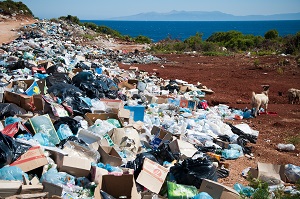
EJAtlas - Global Atlas of Environmental Justice
published by EJAtlas
The Environmental Justice Atlas is an evolving map documenting, to date, 3871 cases of environmental justice conflicts around the world. The map includes: data on waste management; nuclear safety; land conflict through forests, agriculture, fisheries and livestock management; extractive industries; tourism and biodiversity conservation conflicts. Using visual and literary data, teachers and students can explore the map by country, company or commodity to learn more about the local and global footprint of the extractive industries and the struggles against it.
Toolkit and Guidance for Preventing and Managing Land and Natural Resources Conflict by Alex Grzybowski, published by United Nations Department of Political Affairs, (2012)
Access this resource
Deforestation and development: A decolonial perspective from Indonesia by Tania Murray Li, published by Decolonising Geography, (2022)
Read this article
Material Crimes: A very British massacre by Daniel Selwyn, published by Surviving Society, (2022)
Listen to this podcast
West Papua aims to be earth’s first Green State by ULMWP Provisional Government of West Papua, published by Green State Vision
Visit this website
Assessment of mining in the Amazon basin, published by Amazon Mining Watch
Access this resource
Daniel Selwyn is a Geography teacher at a state secondary school in London. He is also a researcher and educator with the London Mining Network. His research focuses on the intersections between resource extraction, the arms trade and British imperialism.

